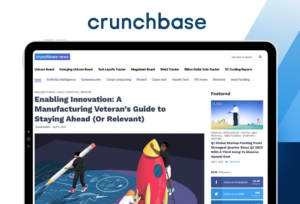Cloud vs. On-Premises ERP: Making the Move

We have become so used to our smartphones that it’s hard to remember life before them. What did we do before GPS and hands-free directions? Similarly, can you remember life before we went wireless? Or when there were only desktop computers and no laptops or tablets or Internet?
Every generation has a new technology that is so beneficial it causes people to move forward and embrace change. We all know colleagues who were hesitant to give up their flip phones and Blackberry’s, but eventually, they joined the migration to better devices. Only to wish they had moved sooner.
It’s a similar situation with the cloud. In our personal lives, we use cloud-based applications every day for our shopping, our banking, our email, our mobile apps, and more. Businesses have also embraced cloud-based applications such as Office 365, file sharing, and collaboration software, to name a few examples.
Therefore, the question becomes not if, but when do you move your ERP system to the cloud?
Here are four considerations when establishing the logistics of the move with your ERP provider when transitioning to the cloud.
Security Plans: You have likely heard many people say that the cloud is more secure. However, you should still verify the security protocols that are in place for your cloud-based ERP. For example, what is the structure of the Backup and Recovery plans? How are scans for vulnerabilities conducted and what is the frequency?
Consistency with Regulations: Adhering to compliance and regulations for smooth audits is a mainstay. Therefore, maintaining a reliable consistency during the transition is a necessity. Developing and adhering to this part of the migration plan should be a particular area of focus.
Changes regarding Employee Education: When moving to a cloud-based ERP, discuss with your provider where there are any changes or updates to processes, methodology, features, or employee input. In addition, what is the scope of support available for your employees?
Measuring the Cost Savings: A key benefit of moving to the cloud is the cost-savings. Therefore, expectations should be set when the cost savings should begin to manifest. Specifically, discuss how the ROI is to be measured and what constitutes the ROI.
Transitioning to a cloud-based ERP should be a smooth process. People are naturally hesitant to accept any change, particularly certain members of staff. Today, however, the familiarity of other cloud-based applications increases the means and acceptance of the adoption of a cloud-based ERP. Likewise, when people adjust to the minimal amount of change once the move to the cloud-based ERP has occurred, they will begin to see the benefits. Then these benefits will not just be realized, they will become an expected part of their daily lives in business.
We are dedicated to providing the best ease and implementing the best practices of transition to your cloud-based ERP. We will walk through the process and discuss the logistics of the upgrade to your satisfaction. To begin, get in touch at 412-562-9660, or email us at info@decision.com.
Similar Blogs

Decision Resources Featured on Crunchbase

Chips, drugs, and steel — how to prepare for Trump tariffs





